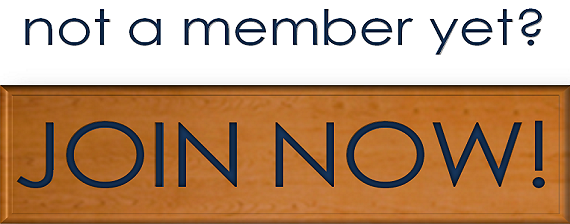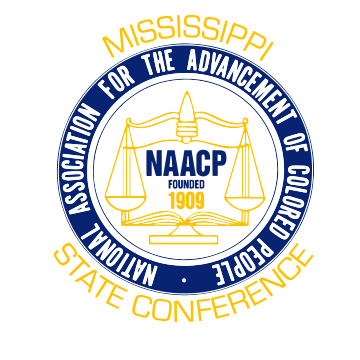Obama’s Retirement Plan: Help Black Kids
After he leaves the White House, friends say the president will return to his passion: helping African Americans through his My Brother’s Keeper Alliance.
I went to the Bronx on Monday with a hunch that Obama was about to tell us; and I wasn’t disappointed.
At the risk of emphasizing his status as a lame duck, Obama announced the establishment of My Brother’s Keeper Alliance, a nonprofit outgrowth of the My Brother’s Keeper program in the White House that the president announced more than a year ago, with little fanfare from a jaded press and public.
Even highly informed people have never heard of “MBK,” but here was Obama, a la Joe Biden without the profanity, ad libbing that this was “a big deal.”
The program is aimed at providing opportunity and a shot at the American Dream for the most disadvantaged segment of society—boys and young men of color.
BYMOC (yes, everything must have a tiresome acronym these days) won’t take up all of the president’s bandwidth; he’ll still have plenty of time for lucrative writing and lecturing, and golf.
But his friends say Obama intends to devote real time and energy to My Brother’s Keeper, whileMichelle likely will eventually develop a nonprofit offshoot of the White House Office on Women and Girls, now headed by senior adviser Valerie Jarrett.
“We are in this for the long haul,” the president said Monday in a speech at Lehman College. “I notice we don’t always get a lot of reporting on this issue when there’s not a crisis in some neighborhood. But we’re just going to keep on plugging away. And this will remain a mission for me and for Michelle not just for the rest of my presidency, but for the rest of my life.”
An old friend from Chicago, John Rogers, founder of Ariel Capital Management, was unsurprised. “This initiative fits perfectly with how they were living their lives before they moved to Washington,” Rogers said. “He has this passion about African Americans participating fully.”
Michael Nutter, the mayor of Philadelphia and part of an eclectic group (Rogers,John Legend, Alonzo Mourning, Walter Isaacson to mention a few) on the new MBK board, told me that offering new opportunities for the poor has always been “the centerpiece of his life’s work,” from his years as a community organizer onward.
Until recently, Obama hasn’t been able to admit that, an omission that stripped his presidency of its most organic, authentic, and coherent theme. In his first term, he was especially conscious of being president of all the people and—with the exception of inspiring messages on Father’s Day—largely shied away from talking about young black men.
He actually trimmed a few Bush-era mentoring programs that he didn’t think worked well and failed to introduce his own package of early-childhood education and other youth initiatives until the House went Republican and they were DOA. Pilot programs for holistic “Promise Neighborhoods” (based on Geoffrey Canada’s successful Harlem Children’s Zone) have been too lightly funded to leave an impact. With 2011 consumed by deficit politics and 2012 by reelection, it seemed as if Obama’s “centerpiece” had been misplaced or lost altogether.
But after his second inauguration, Obama talked passionately with small groups of young men in Chicago and elsewhere. When the president said “Trayvon Martin could have been me 35 years ago,” it was clear he wanted to move beyond soothing words to something more concrete. Ferguson, Staten Island, and Baltimore reinforced the point.
“If we’re just looking at policing, we’re looking at it too narrowly,” Obama said Monday. “If we ask the police to simply contain and control problems that we ourselves have been unwilling to invest and solve, that’s not fair to the communities, it’s not fair to the police.”
Even in the Bronx, you could sense Obama’s frustration over the predictable dynamic of crisis followed by finger-pointing and hypocrisy. Because Obama fatigue has set in and his words are now rarely quoted at length, I’m doing so here to show a side of him familiar to his staff and friends but infrequently seen in public:
“People tweet outrage. And the TV cameras come. And they focus more on somebody setting fire to something or turning over a car than the peaceful protests and the thoughtful discussions that are taking place. And then some will argue, well, all these social programs don’t make a difference. And we cast blame. And politicians talk about poverty and inequality, and then gut policies that help alleviate poverty or reverse inequality. And then we wait for the next outbreak or problem to flare up. And we go through the same pattern all over again. So that, in effect, we do nothing.
“There are consequences to inaction. There are consequences to indifference. And they reverberate far beyond the walls of the projects, or the borders of the barrio, or the roads of the reservation. They sap us of our strength as a nation. It means we’re not as good as we could be. And over time, it wears us out. Over time, it weakens our nation as a whole.”
Many conservatives don’t think it does. They’re wrong. Setting aside the moral questions, solid research has now proven the severe economic consequences of kids without pre-K, of kids not reading at grade level at third grade, of teens not graduating from high school and getting at least some post-secondary training, of non-violent inmates not being given a second chance to become law-abiding taxpayers. Those are the main areas of intervention that Obama says he will keep returning to long after the cameras are gone.
An MBK report says that closing the achievement gap between white students and black and Hispanic students could increase annual GDP by more than half a trillion dollars. Every kid between ages 16 and 24 disconnected from school and work eventually costs taxpayers nearly $1 million in safety-net or incarceration costs. Meanwhile, three million decent jobs will soon be out there for anyone with the right training.
Given the publicity about potential corporate conflicts-of-interest in the Clinton Global Initiative, the timing of the MBK announcement was inauspicious. With major foundations including Gates and Ford leery of working in harness with each other and the president, MBK is relying on corporate partners like Deloitte, whose former CEO, Joe Echevarria, will run it. The suddenly significant corporate connection is making some Obamanians nervous. It means that for the 20 remaining months of his presidency, Obama will have to have little or no contact with the focus of his ex-presidency.
While the president always envisioned a parallel nonprofit for his White House effort, the announcement also signals that he has all but given up on convincing Congress or creaky bureaucracies to move. It’s a symbolic moment—the privatizing or at least NGOing of the Great Society.
That is likely the right way to go. One of the MBK prototypes that Obama would like to take to scale is called Year-Up. It’s an intensive one-year program to train at-risk kids for the work force and place them with large companies. Year-Up is a big success—much better than anything that might come out of, say, the Department of Labor. “Nonprofits have maximum flexibility,” Nutter says. “The government isn’t built for speed.”
Whatever happens to this initiative, we’re finally learning more about what moves this president.
Speaking for the other blacks and Latinos on the new board, Obama said simply: “We see ourselves in these young men.”
Then he went off script to quote a young man named Malachi he had met just minutes before. Malachi introduced an element that had escaped discussion: love.
“Malachi and I shared the fact that our dad wasn’t around, and that sometimes we wondered why he wasn’t around and what had happened,” the president said.
“What this comes down to is, do we love these kids?”
source: The Daily Beast



